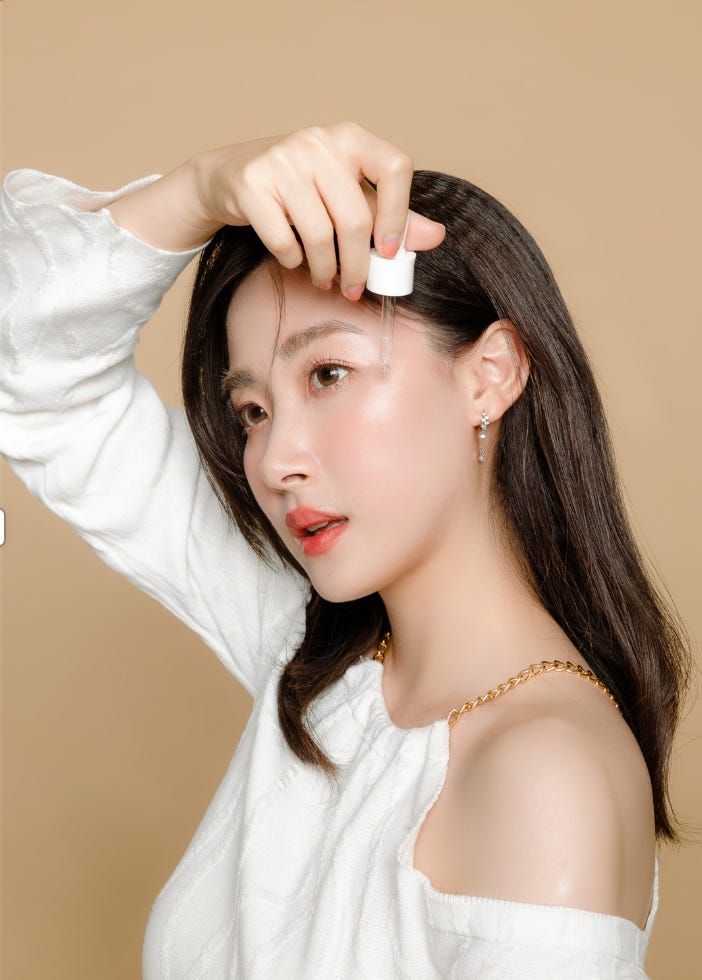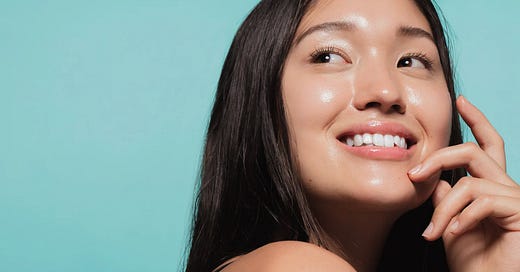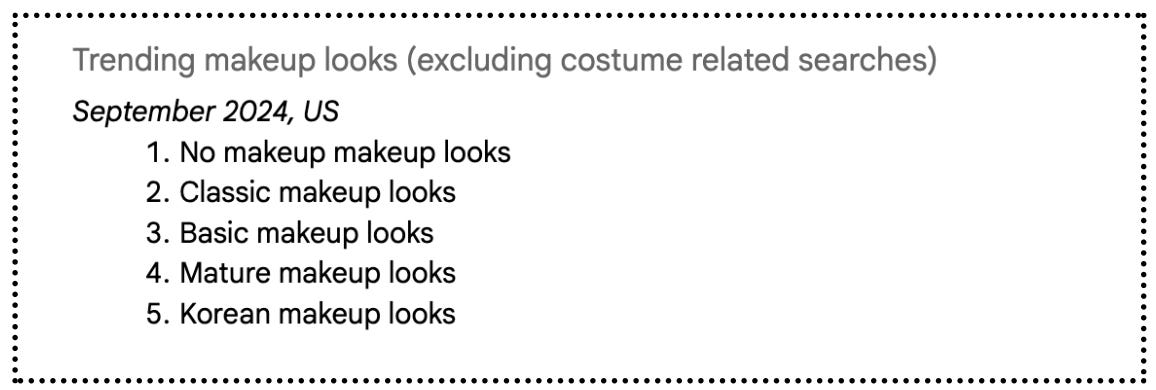Why Everyone's Talking About Korean Skincare
Inside the rise of K-beauty and how it's transforming faces—and the beauty industry—worldwide.
Let me take you inside Olive Young, South Korea's equivalent of Sephora. Recognized by its olive green banner and O-shaped olive logo, it's hard to miss. As you cross the threshold into the store, you're immediately enveloped by a symphony of colors and scents. Shelves brimming with hundreds of skincare products stretch as far as the eye can see—serums infused with exotic ingredients like snail mucin, ginseng creams promising youthful radiance, and sheet masks for every conceivable skin concern.
The atmosphere is both exhilarating and a bit overwhelming, but the friendly staff are eager to guide you through this skincare wonderland.
In this bustling store, you quickly realize that skincare in Korea isn't just a routine—it's a way of life. The emphasis on personalized care is evident in the sheer variety of products catering to every skin type and concern. Unlike the one-size-fits-all approach you may be used to, here you can tailor a regimen uniquely yours.
Korean skincare, or K-beauty, has captured global attention not just for its innovative products but also for its cultural significance. Rooted in a society that highly values appearance as a form of respect and professionalism, K-beauty offers a holistic approach to skincare that resonates with consumers worldwide. This rising trend presents a unique opportunity for people to tap into a market that's both lucrative and culturally rich.
Unlocking Business Opportunities in K-Beauty
The global fascination with K-beauty opens several doors for savvy entrepreneurs:
Global Market Influence
In 2021, South Korea was the third-largest cosmetics exporter in the world, following France and the U.S., according to the International Trade Administration. That year, total exports were valued at around $9.2 billion. By September 2024, "Korean makeup looks" ranked among the top 5 makeup trend searches on Google.
As of 2023, the South Korean cosmetics market was valued at an estimated $17.45 billion and is expected to grow at a compound annual growth rate of 5.4% (to $28.02 billion) by 2032. With AI driving personalized product suggestions, producers see increasing demand from North America, Europe, and Southeast Asia through online markets.
E-Commerce and Social Media Surge
400%: The increase in global e-commerce beauty sales from 2015 to 2022, with online sales surpassing 20% of the total beauty market by 2023 (McKinsey & Company).
12%: The expected annual growth rate of beauty e-commerce between 2022 and 2027, making it the fastest-growing channel in the industry (McKinsey & Company).
46%: The percentage increase in cross-border e-commerce cosmetic sales out of South Korea since 2019. The $4.7 billion valuation highlights a significant shift in consumer habits toward digital platforms (International Trade Administration).
58%: The share of women in the United States who discovered new beauty and personal care products to buy on social media in 2023 (Statista).
#KBeauty: Over 7.3 million posts on Instagram under this hashtag, showcasing its global popularity.
Our Analysis: The Cultural Roots and Global Rise of K-Beauty

The obsession with skincare in Korea is believed to stem from a cultural emphasis on appearance and professionalism. In a society where even resumes include photos, and personal presentation is paramount, the demand for effective skincare solutions is intense. South Korea has been dubbed “the plastic surgery capital of the world,” with 1 in 3 women between the ages of 19 and 29 having undergone cosmetic procedures.
The global rise of K-beauty is timely. Consumers are increasingly seeking personalized, high-quality skincare without the hefty price tag often associated with premium brands. Korean products fill this gap by offering innovative formulas with unique ingredients at accessible prices. Additionally, the trend toward natural and holistic beauty routines aligns perfectly with K-beauty's philosophy.
Now, you're more cultured because you know that in South Korea, your skincare game is just as important as your resume.
Ready to become a paying subscriber?
Next Steps:
If you like what you see, click subscribe.










